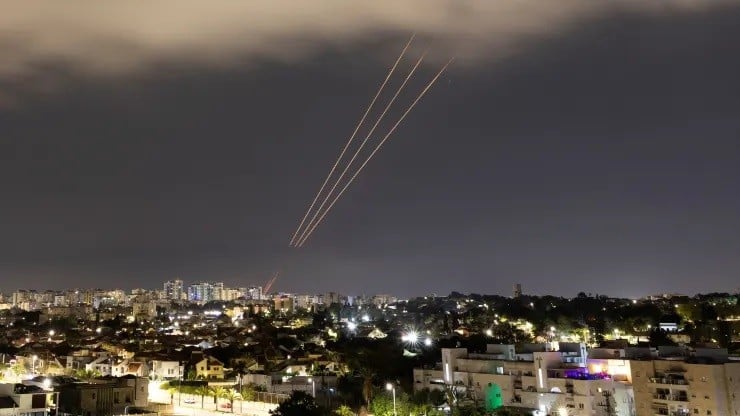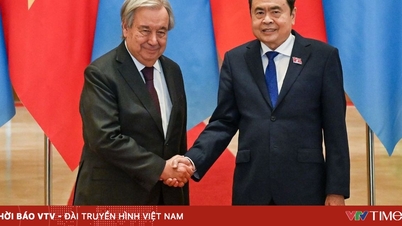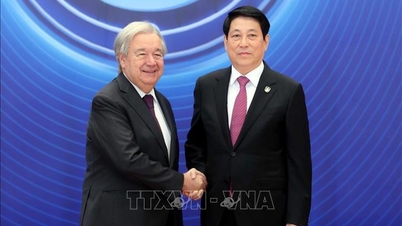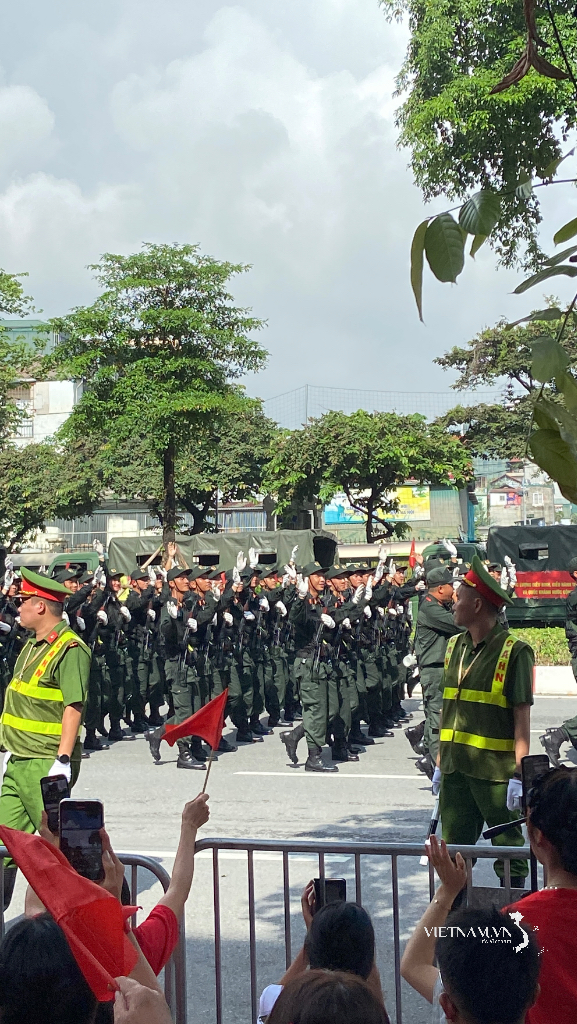On April 19, United Nations Secretary-General Antonio Guterres called for an end to the “dangerous cycle of retaliation in the Middle East.”
 |
| The anti-missile system was activated after Iran launched drones and missiles toward Israel on April 14. (Source: Reuters) |
Stephane Dujarric, spokesperson for the UN Secretary-General, issued this statement after reports that Israel had launched attacks targeting Iranian objectives.
"The UN Secretary-General reaffirmed that this is the time to end the dangerous cycle of retaliation in the Middle East," Mr. Dujarric stated.
He also condemned any retaliatory actions and called on the international community to cooperate to prevent any further developments that could lead to worrying consequences for the entire region and beyond.
Meanwhile, AFP reported on April 19th that scholar Julien Barnes-Dacey, Director of the Middle East and North Africa program at the European Council on Foreign Relations, assessed that both Israel and Iran appear to be seeking to detach themselves from the current escalation.
In that scenario, Israel launched a very limited attack in retaliation for Iran's April 13 attack, while Tehran quickly downplayed the incident to avoid pressure to retaliate.
According to scholar Julien Barnes-Dacey, at this moment, neither side wants war. Nevertheless, there remains a risk of a larger-scale confrontation because it is unclear whether the April 19 attack on Iran was the full extent of Israel's response.
Meanwhile, scholar Hasni Abidi, Director of the Center for Arab and Mediterranean Studies in Geneva, Switzerland, assesses that both Israel and Iran have exercised a certain degree of restraint.
For Iran, this is a closed issue, and they desire an end to the tensions more than Israel. Nevertheless, the risk of escalation remains due to Iran's support for Hezbollah and Hamas and its potential to retaliate through these forces.
Source


![[Image] Leaked images ahead of the 2025 Community Action Awards gala.](/_next/image?url=https%3A%2F%2Fvphoto.vietnam.vn%2Fthumb%2F1200x675%2Fvietnam%2Fresource%2FIMAGE%2F2025%2F12%2F16%2F1765882828720_ndo_br_thiet-ke-chua-co-ten-45-png.webp&w=3840&q=75)

![[Photo] Prime Minister Pham Minh Chinh receives the Governor of Tochigi Province (Japan)](/_next/image?url=https%3A%2F%2Fvphoto.vietnam.vn%2Fthumb%2F1200x675%2Fvietnam%2Fresource%2FIMAGE%2F2025%2F12%2F16%2F1765892133176_dsc-8082-6425-jpg.webp&w=3840&q=75)
![[Live] 2025 Community Action Awards Gala](/_next/image?url=https%3A%2F%2Fvphoto.vietnam.vn%2Fthumb%2F1200x675%2Fvietnam%2Fresource%2FIMAGE%2F2025%2F12%2F16%2F1765899631650_ndo_tr_z7334013144784-9f9fe10a6d63584c85aff40f2957c250-jpg.webp&w=3840&q=75)
![[Photo] Prime Minister Pham Minh Chinh receives Lao Minister of Education and Sports Thongsalith Mangnormek](/_next/image?url=https%3A%2F%2Fvphoto.vietnam.vn%2Fthumb%2F1200x675%2Fvietnam%2Fresource%2FIMAGE%2F2025%2F12%2F16%2F1765876834721_dsc-7519-jpg.webp&w=3840&q=75)





































































































Comment (0)